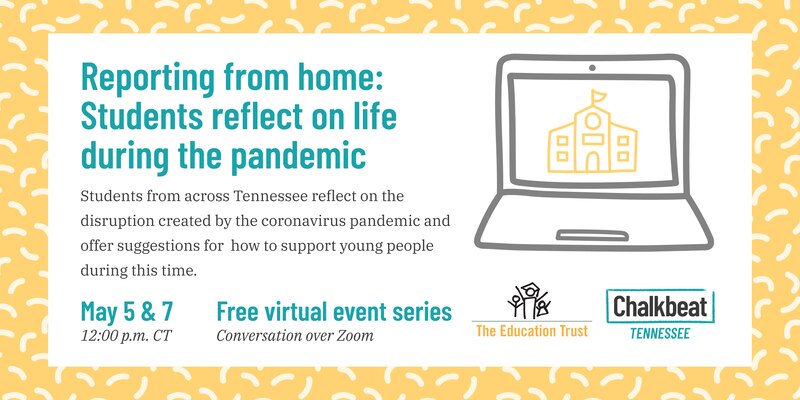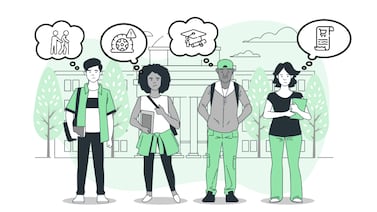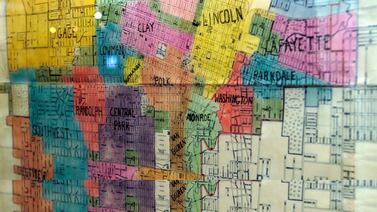Kez Echols, an eighth-grader in Nashville, misses science lab the most.
He misses much about his life at Rose Park Middle before the new coronavirus spread quickly around the world and into Tennessee, shutting down school buildings likely for the remainder of the academic year. Kez misses his soccer team, seeing his friends during recess, and asking questions about poetry during English class.
“But I really miss science,” he said. “The last lab I remember before the whole coronavirus thing happened was on magnetism, where we built our own simple magnets using batteries, nails, and things of that nature.”
Kez’s school is doing some online work, but none of the coursework so far involves video conferencing. He said he hopes his school incorporates live teaching, so he can ask his teachers questions and hear from other students in real time.
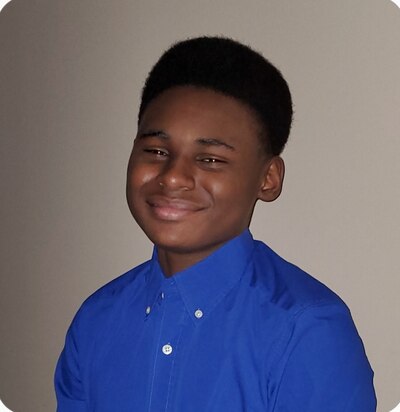
He has a lot of other ideas for how to make education better for students during this time.
Kez will be one of 12 students sharing their experiences next week as part of a two-event virtual series hosted by Chalkbeat Tennessee and The Education Trust in Tennessee. We’ll hear from students around the state as they reflect on the disruption created by the pandemic and offer suggestions for parents, teachers, and community leaders on how to support young people during this time.
Here’s what a typical day in the coronavirus era looks for three of these students, in their own words:
Johanna Olvera, a 12th grader at Freedom Prep Academy in Memphis
Even with things being so strange, there’s really not a typical day for me. Sometimes, I have to take care of my 9-year-old brother while my parents work. My mother works in a warehouse, actually packing boxes of facemasks. My dad is in construction. Other days, I travel to my aunt’s house to watch my cousin.

When I get up in the morning, I have to make sure my brother is in his Zoom class and doing what he needs. I also have to check in on my friends. We’ve all been struggling with motivation to do our work – I have to drag my friends to our Zoom classes. There have been a lot of emotions. Prom was canceled, and then graduation postponed. It’s taken a big toll on our seniors and motivation to graduate. I try to keep pushing myself and my friends.
I want people to know that not all communities are experiencing all this in the same way. I think it’s different for students of Latinx or Hispanic cultures, or people who are undocumented. There’s a fear of being detained or deported, and now we have even more of a fear of people being stopped for no reason when they’re out doing some of the jobs the city has designated as essential work.
William Collins, a sophomore at Fisk University in Nashville
My schedule has been completely out of whack since moving home, from Nashville back to my hometown of Dayton, Ohio. My day starts around noon – I get up and take a shower. I have to catch a bus to where I work, Freddy’s Frozen Custard, at 2:30 p.m. I work a short shift until 8:45 p.m., and then it was back home to work on my school assignments until 4 or 5 in the morning. Then I’d fall asleep and do it all over again, though thankfully, I took my last final this past Wednesday. So, I get more time in the evenings now.
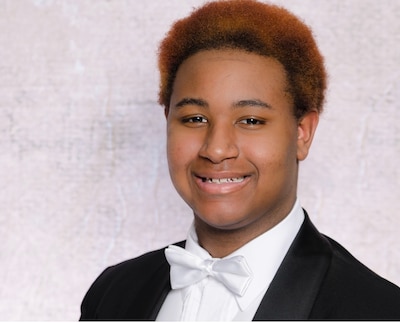
I had a campus job, and I was planning on staying on campus this summer. Having all of your plans tossed up in the air – and not knowing if they’re ever going to come down – has been a huge pain. The money part is also frustrating and scary – I paid a lot of money to live on campus and there haven’t been any talks of refunds for room and board.
I want people to know that this is a hard transition for many of us who maybe viewed college as an escape from an old life. It feels like we were plucked from our lives and thrown into obscurity. My parents are phenomenal and want to see me succeed. I’m part of the LGBTQ community, and they’ve never stopped loving me. But many don’t have the same privileges and are going home to an unsafe environment.
Ashton Mayo-Beavers, a 12th grader at Chattanooga High School for Creative Arts
Even though I’m from Chattanooga, I’m living in Knoxville right now with my grandparents and little brothers because of tornado damage to our house and neighborhood. It’s really hard to do online school without Wi-Fi, and ours got taken out during the storms.
I wake up, have breakfast, and get my 7- and 8-year-old brothers separated, because they don’t work well when they’re next to each other. I help them with their online school work, and then I get to my work around midday. I work for four hours, help with dinner, and then work more on my school until midnight.
I want people to know that this has taught me not to take for granted teachers, for certain. And also that education is not the same for us right now. I just did my senior project on the digital divide – the difference between people who have access to tech and know how to use it and those who don’t. I started it at the beginning of the year, and now it’s hard to think about all the kids who want to keep learning right now, but they can’t because of what they don’t have.
